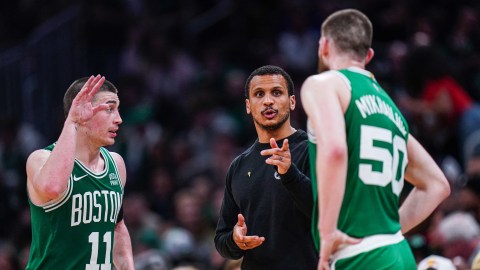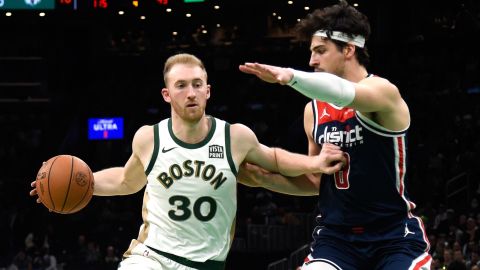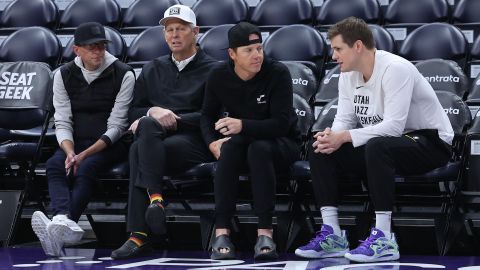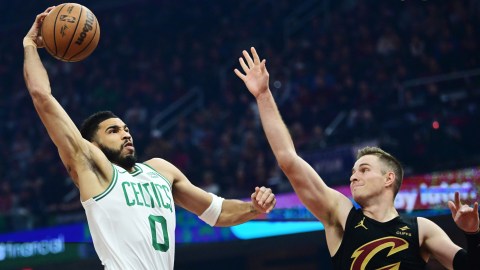From high school to recreational leagues to AAU, the mantra of following your shot is ingrained in almost every basketball player. A player who puts up a shot and starts to retreat back down the floor usually can count on a quick hook from his or her coach.
If the coach is Doc Rivers, though, he may clap.
Rivers does not believe in the time-honored unwritten rule of following one’s shot, and the Celtics’ offensive rebounding numbers under him are a testament to that. Since Rivers took over as head coach of the Celtics in 2004, Boston’s offensive rebounding rank has gone like this: 23rd, 28th, 18th, 23rd, 21st, 30th, 30th, 30th and so far this season 30th again.
Whereas “follow your shot” may have more adherents, Rivers’ logic is sound, and the results back him up. When a player crashes the offensive glass, there is a small chance he will get the offensive board and create an extra scoring opportunity for his team — but a huge chance he will be caught out of position defensively if he does not get the board. If a player goes for the offensive rebound and fails, he effectively gives the opponent a 5-on-4 advantage. If more than one player goes for the offensive rebound, suddenly it is highlight time for the other team.
Go back to those offensive rebounding ranks. The only season in which the Celtics were halfway decent under Rivers was 2006-07, when Al Jefferson averaged 3.4 offensive boards per game for a 24-win club. The next season, with a roster that included some pretty good rebounders in Kevin Garnett, Kendrick Perkins, Leon Powe and P.J. Brown, the Celtics de-emphasized offensive rebounding, fell five spots in that stat and won a championship. Two years later they were rock-bottom in offensive rebounds and came within one win of another title. Last season they were again the worst offensive rebounding team in the league, yet they made it to Game 7 of the Eastern Conference Finals.
“Listen, you can pick on that all you want,” Rivers said Wednesday after his team came within 88 seconds of being held without an offensive rebound by the Spurs. “That is a number I rarely look at, offensive rebounds. Statistically, it holds up. I can tell you, you don’t offensive rebound, you stop [the opponent’s] transition, you win more games than when you get offensive rebounds. I can guarantee you that on those stats.”
Just in case Rivers’ word is not enough to convince the skeptics, here is how the Celtics’ field goal percentage defense evolved over time: 13th, 19th, 24th, first, first, ninth, third, first — and so far this season a disappointing 24th. Yet 12 games are not enough to throw out a pattern of success built over the better part of a decade. Compare these defensive rankings again to the offensive rebounding rankings above. For the Celtics, there is a direct correlation between crashing the offensive glass and playing crappy defense.
Rivers might get shouted down by old-schoolers for whom “Follow your shot!” is as sacred as the Lord’s Prayer. Reggie Miller would probably accuse Rivers of being a “lab geek rat” with a “pocket square.” Somebody, somewhere, probably assumes Rivers came up with the theory while poring over spreadsheets in his parents’ basement.
But Rivers clearly looked at the numbers and reached an either-or proposition. Would he rather get a few more tap-ins per game, or would he rather have a defense that was not awful? Given those options, Rivers chose the one that would translate into more wins for the Celtics.
What a nerd.
Have a question for Ben Watanabe? Send it to him via Twitter at @BenjeeBallgame or send it here.




